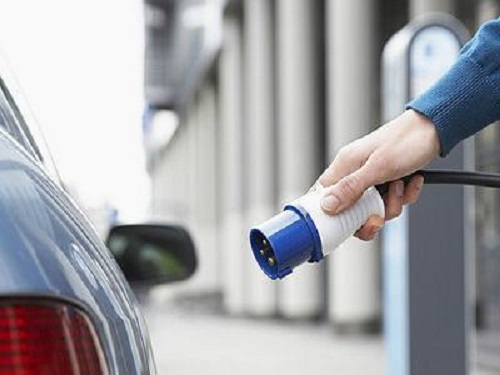In order to strengthen industry regulations and guidance, SAE International has released industry standards for hybrid charging and all-electric vehicle wireless charging technology. This is the first industry standard for wireless charging of electric vehicles and is of pioneering significance. . Elbow Fabrication,Hdpe Fabricated Fitting,Hdpe Blue Fabricated Fitting,Large Diameter Fabricated Fitting SHANDONG DONGHONG PIPE INDUSTRY CO., LTD , https://www.donghongpipe.com
SAE International (Society for Automotive Engineers) is a technical society with more than 143,000 members worldwide. Its members are engineers and related technical experts in the aerospace, automotive and commercial vehicle industries. The newly issued industry standard is abbreviated as “SAE TIR J2954â€, which is intended to establish specifications for light plug-in and all-electric vehicle wireless charging technology, and to implement uniform standards throughout the industry to strengthen industry management and guidance.
The current SAE J1772 standard is a plug-in charging specification and is adopted by most car manufacturers. Car manufacturers that accept the new TIR J2954 wireless charging standard include Daimler (BMW), Fiat-Chrysler, Ford, General Motors, Honda, Jaguar Land Rover, Mitsubishi, Nissan, and Toyota. The electric vehicles of these signed automakers currently account for the vast majority of electric vehicles on the market. It is reported that some original equipment manufacturers (OEMs) at the top level of the industry supply chain, such as Delphi, LG, Panasonic, and Tokyo Electrochemical TDK, have also signed new wireless charging agreements. At the same time, the manufacturers of plug-in systems used in buses, including Volvo, BYD, and Proterra, an American electric bus company, also signed the agreement.
The new SAE standard aims to develop a wireless charging protocol for passenger cars. The standard establishes the Wireless Power Transfer (WPT) protocol for low-speed charging, and provides additional space for other issues such as high-speed charging mode through the appendix. According to reports, the new standard will be formally posted online on May 31, 2016 at the EV Conference in Logan, Utah.
According to reports, SAE TIR J2954 stipulates that 85 KHz (kHz, 81.39-90 kHz) is the frequency band commonly used in light-duty vehicle charging systems. Currently, the new agreement specifies four levels of plug-in and wireless energy transmission levels for all-electric vehicles, but future agreements can be revised to add more levels. After defining the wireless charging frequency band, a wireless charger produced by a car manufacturer can be compatible with wireless charging devices from other manufacturers and charging stations. Just as J1772 allows Nissan and Mitsubishi to use the same charger together, the new J2954 regulation will allow Toyota and BMW to share wireless charging stations, bringing great convenience to consumers.
According to reports, the names of the four charging levels are WPT1-4, but only two levels are currently defined in the document, and the other two levels will be used in the future. WPT 1 specifies a charging capacity (speed) of 3.7 kW, while WPT 2 specifies a charging capacity of 7.7 kW. Currently, the two standards are being tested by the Idaho Department of Energy's experimental team and the Argonne National Labs. At present, bench testing is in progress, and real-time on-board power grid testing is also underway. According to reports, the wireless charging standard plan will be completed in 2018.